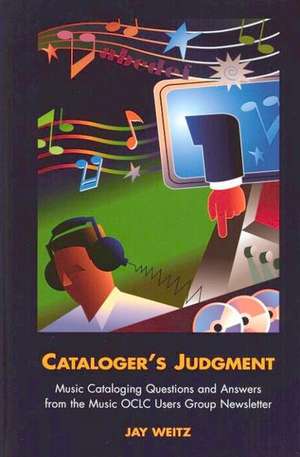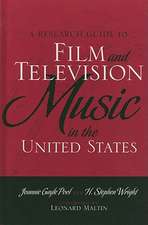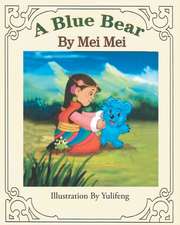Cataloger's Judgment: Music Cataloging Questions and Answers from the Music OCLC Users Group Newsletter
Autor Jay Weitz H. Stephen Wright Editat de Matthew Sheehyen Limba Engleză Hardback – 31 oct 2003
Since 1989, the Music OCLC Users Group's MOUG Newsletter has published a regular Q&A column featuring music cataloging questions from catalogers in the field and answers supplied by Jay Weitz, MOUG's OCLC Liaison and subject matter specialist on music. In this lighthearted and practical compilation, Weitz collects and updates all of the relevant questions and answers that have been featured over the years. Topically arranged and carefully indexed, the questions span the range of problems and issues that music catalogers encounter every day in their dealings with scores and sound recordings. The answers are both pragmatic--with specific references to the Anglo-American Cataloging Rules, the Library of Congress Rule Interpretations, the MARC 21 Format for Bibliographic Data, and OCLC's Bibliographic Formats and Standards--and entertaining to read.
From the Foreword: The book you now hold in your hands is a truly amazing resource--one that tackles "real" music cataloging situations, not examples contrived to illustrate rules. If you are a cataloger, keep it close at hand; you'll be consulting it often. And if you're "not" a cataloger, browse through this book anyway and enjoy Jay's effortless lucidity. You may find yourself disabused of the common perception that catalogers are humorless drones who care nothing for the needs of library users. More importantly, though, you'll gain a new appreciation of the problems catalogers face every day, and how they solve them with grace and style.
Preț: 354.14 lei
Preț vechi: 397.92 lei
-11% Nou
67.76€ • 70.94$ • 56.07£
Carte disponibilă
Livrare economică 15-29 martie
Specificații
ISBN-10: 1591580528
Pagini: 265
Dimensiuni: 156 x 243 x 26 mm
Greutate: 0.58 kg
Editura: LIBRARIES UNLIMITED
Descriere
From the Foreword: The book you now hold in your hands is a truly amazing resource—one that tackles real music cataloging situations, not examples contrived to illustrate rules. If you are a cataloger, keep it close at hand; you'll be consulting it often. And if you're not a cataloger, browse through this book anyway and enjoy Jay's effortless lucidity. You may find yourself disabused of the common perception that catalogers are humorless drones who care nothing for the needs of library users. More importantly, though, you'll gain a new appreciation of the problems catalogers face every day, and how they solve them with grace and style.
















